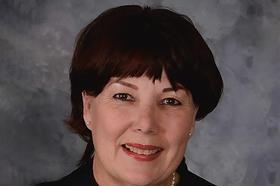Is a new era of training and supervision under way in the legal sector? Diana Bentley investigates

A new era in legal vocational training has begun. With the advent of a new pathway to qualifying as a solicitor – through the Solicitors Qualifying Examination (SQE) – and with training under the Legal Practice Course (LPC) ending in 2032, it is a time of considerable change. Currently, many firms will have trainees working towards their qualification through both routes.
But, as training under the SQE and the Qualifying Work Experience (QWE) will be much more flexible than it was under the LPC, firms are also re-examining what forms of supervision they want to provide to ensure their trainees get
the best practical education they can, while bearing in mind the requirements of the Solicitors Regulation Authority (SRA). Much of what they have developed already will be valuable. And yet, the management of trainees and methods of delivering training have permanently altered in the wake of the COVID-19 pandemic. So, there’s much to think about.
Hybrid working
A striking outcome of the COVID-19 pandemic has been the normalisation of hybrid working. Like other businesses, law firms are now more flexible about how people work. The degree of hybrid working can differ between city firms and smaller regional firms (depending on commuting time), but hybrid working is here to stay. According to consultant Peter Scott: “Post-lockdown, there’s more confidence that lawyers will be productive at home.” For trainees, though, the rules can differ – and for good reason. “Trainees need to be in the office more, as it’s where they learn from their peers about the law, how to go about practising and how to behave,” Scott says.
This consideration has shaped law firm policies on hybrid working for trainees. Russell Cooke, which currently has 18 trainees, expects its staff to split their time between onsite and remote working, with 60% spent in the office and 40% at home. But, for trainees, it’s 80% in the office and only 20% at home. “We’re committed to ensuring that our trainees get as much exposure to firm life as possible, as well as the best training, and we don’t think that can be done (largely) in front of a screen,” says graduate recruitment partner, Rebecca Fisher. Burges Salmon, which has 50 trainees overall, also has different expectations for its trainees. The firm’s learning and development adviser, Alison Burd, explains that: “Under our guidelines, people should be in the office on a 40% to 60% basis – or two or three days a week – but we ask the trainees to be in at least three days a week.” Meanwhile, at Mills & Reeve, trainees (of which there are 55) are expected to spend more than 50% of their time in the office over a two-week cycle, according to the firm’s graduate recruitment manager, Rachael Wake. And yet, all three firms note that their trainees come into the office almost daily by choice, no doubt driven by a desire to learn and to form relationships. As Alison points out: “In the office, they can interact with other lawyers. They like socialising together, too, and organising events for themselves.”
Supervision

A chief concern during lockdown – and now, with hybrid working – is how trainees can receive the intensive personal supervision they need, and firms are taking special measures to ensure that this is available. “Trainees learn by osmosis. Attending client meetings with experienced lawyers, for instance, is an important learning curve for them,” Alison Burd comments. “We address the supervision of hybrid working in our trainee induction period, covering matters such as how often they have to communicate with their supervisor. We try to ensure that the times the trainees and their supervisors are in the office overlap.”
Law firm trainees have a department supervisor – sometimes two – in each seat. Even if they aren’t in the office together, they still need to have open lines of communication. “Some of our trainees have a daily catch-up with their supervisor so that they can ask questions,” Burd says. Each trainee is also allocated a ‘people team’ contact at the start of their training contract who will support them until they complete this. “This is someone who can help them with any issues they have – say, with a career plan or what seats they want to do.”
At Mills & Reeve, trainees have a seat supervisor, who allocates work to them and supports them during each seat placement, together with a trainee principal. “The trainee principal is a partner who will support the trainee throughout their entire two-year training period. They meet several times during the trainee’s four-month seats to have a general catch-up or to discuss where the trainee’s career may be going,” says Rachael Wake. Trainees are also given a ‘training buddy’ – someone who is a year above them and also a trainee – so that they have an ally from the start.
And at Russell Cooke, trainees have a dedicated trainee supervisor in each of their four six-month seats as well as the graduate recruitment partner available to them.
Induction and training
Firms now use a whole raft of vocational programmes for their trainees, often starting with a special induction course. However, Peter Scott reports that there is a great discrepancy in the range and duration of these courses, which often depends on the size of the firm. “In smaller firms, they may last several days; in larger firms, it could be several weeks. Ideally, they should cover every aspect of how the firm operates so that trainees fully understand the firm’s systems.” But induction courses should also – crucially – address the firm’s values, bearing in mind the SRA’s requirements on the supervision of trainees. Scott explains: “That is, the need for politeness, respect for others, the ethics of the profession, and how they’re expected to behave, which may include behaviour outside the office, too – values that are now reflected in the Solicitor’s Code of Conduct.”
New trainees at Burges Salmon have a full-time, two-and-a-half-week induction course, which currently includes an introduction to the firm, some professional skills course (PSC) modules – as they will have completed the LPC by the time of their induction – and some soft-skills training. “We address hybrid working issues, then there’s an introduction to our technical and finance systems, and some training on subjects like personal impact, networking and presentation skills,” says Alison Burd. Trainees rotate around six, four-month seats where they have part-time inductions tailored to the seat. Training required by the SRA and the PSC is undertaken by external organisations like the University of Law, Fresh and Kinch Robinson, while the firm decides what additional training it wants to supply over the two-year training period. “We do much of the personal and soft-skills training ourselves,” Burd notes.
At Mills & Reeve, trainees start with a two-week, full-time induction course. This includes some PSC training, followed by sessions on information technology, client care, diversity, time recording, legal research and an introduction to the training and development team. Trainees then work through six seats of four months each, which begin with an information pack and training on what to expect in that seat, an explanation of what the team does in that area of law and what regular documents it uses.
Meanwhile, trainees get off to a quick start at Russell Cooke, where they begin work immediately in their first seat. Special induction sessions are provided in the first week, with talks by Rebecca and the firm’s managing partner introducing them to the firm, how the seat allocations work, time recording and other matters. Here, trainees also have four, six-month seats, with at least one contentious and one non-contentious seat, which Rebecca says offers the best variety of work. Courses on matters like writing skills continue throughout the training period. Trainees have a dedicated ‘learning hub’ for their online courses, host presentation evenings and get involved in department-specific know-how events.
Training on soft skills is particularly important, according to Peter Scott: “Law firms report that many of the skills needed for practice aren’t taught at university, but they are clearly set out in the SRA’s Statement of solicitor competence – in particular, paragraphs C and D of the statement.” Communication – something that is mentioned frequently in the statement – is an important example, he stresses, as it’s a crucial skill for lawyers, and has an impact on everything they do. Kath Kinch, co-founder and director of training specialist Kinch Robinson, says these skills may not be provided as part of professional training, either: “There are some skills and knowledge areas not sufficiently covered by the new SQE / QWE pathway, and which trainees need to get to grips with during their training period to be effective as newly qualified solicitors. We call that the ‘SQE gap.’”
Methods of delivery
The COVID-19 pandemic has also brought about real changes in the way training is delivered. Now, approaches are more varied, and the chosen method of supervision is usually driven by what is most suitable and practical for the subject. “Before lockdown, our firm didn’t use any remote training. Now, it’s more flexible. We use hybrid training – a mix of face-to-face and remote learning,” says Alison Burd. “With trainees, we tend to offer face-to-face training more often than not, and trainees prefer this, too. It’s also a way of bringing the trainees together and helping them build relationships in the firm.” E-learning is used for some courses but, for others, the firm uses Teams sessions, which it tries to make as interactive as possible.
A combination of face-to-face and online, live sessions is also used at Mills & Reeve. “My team provides regular training on part of the PSC and soft skills like time recording, communication skills and how to balance their day. This continues throughout the training contract,” says Rachael Wake. After COVID-19, the firm is trying to get back to 60% training in person, as it is particularly valuable for trainees and for subjects like advocacy and communication. “With face-to-face training, it’s easier to share things like best practices, which really helps the trainees. They meet trainees from other offices and it’s good for them to feel like a team. Even with our online training, we like to have an interactive element, with guests like partners commenting on matters.”
Online training, the norm during lockdown, has proven to be indispensable due to its benefits, says Kath Kinch, whose firm offers courses in a range of formats. “90% of our courses are now delivered online. It provides greater flexibility for firms and is more cost-effective, as it allows trainees to incorporate the training into their working day,” she says. “Generally, we now deliver 90-minute or three-hour sessions rather than a full day. Many firms preferred a full day before COVID-19, to take account of issues like travelling costs. Online training allows us to deliver individual coaching and feedback on things like writing and drafting skills, interviewing, negotiating and advocacy. Pre-COVID-19, this had to be done on the same day with the trainer in the firm’s offices. Now, online sessions can be booked through our automated booking service.” Kinch also says that scenario-based training, with trainees working in small groups with a tutor to get feedback, is proving popular as a particularly effective learning process.
Going forward
With the LPC route to qualification ending in the near future, firms are determining how best to move forward. “The majority of trainees from 2023 onwards will be following the SQE route. There are no mandated course requirements during QWE as there were with the PSC, so courses can be much shorter and focused on firms’ and trainees’ needs,” Kinch notes. “Many firms require trainees to pass SQE 1 and SQE 2 before starting the QWE. But passing the SQE is just the start for trainee solicitors who want to be ready for practice. We’re working with firms now to identify the additional training required to meet their needs and develop effective courses and e-learning to do that.”
From 2025 onwards, all trainees at Mills & Reeve will be following the SQE route to qualification. The firm may retain some PSC training, though, as Rachael Wake says her team is developing a bespoke training package for trainees. “It will be training to develop their skills as a lawyer, which will include soft skills and also practical skills.” Much of the existing skills training is still necessary to equip trainees for practice and, as other firms have done, Wake says that her team constantly reviews the effectiveness of the training programmes offered by Mills & Reeve. “We get feedback from trainees in their mid-seat reviews and at the end of their placements, and we must listen to this and learn about what they want. We also work with the trainees’ supervisors to see how our programmes can develop, and we monitor what’s happening in the legal market.”
Feedback is also sought at Russell Cooke and shared with its trainers. “Our trainees have a seat review two months into each seat and at the end, as well as two meetings each seat with the graduate recruitment partner, so we look for feedback on what they’re learning then, too,” says Rebecca Fisher. Burges Salmon also continuously reviews its training programmes. “We do feedback surveys, which aren’t compulsory, but many trainees complete them, and the feedback is valuable,” says Alison Burd. She attends training sessions to gauge how trainees react to them and how the firm might modify its elective training. “For personal development training, we look at trends and what other firms are doing.” The firm is transferring its whole training programme to the SQE route from 2024. The trainees starting in September 2024 will all have completed the SQE assessments before joining Burges Salmon to complete their two years of QWE. Now, the firm is reviewing its training post-SQE, but it is likely that some of the subjects from the PSC will be retained. Burd states: “They may not be delivered in the same way, and we may pick the most relevant aspects of the PSC courses rather than delivering them as they currently stand.”
Conclusion
With the ‘war for talent’ said to be a serious issue for firms and the investment they make in training, it’s no surprise that they want to retain their trainees. “We try to keep as many as possible as we try to help them reach their full potential to have a long, productive career with us, and we do retain the majority of them,” says Alison Burd. This year, 23 out of the 28 trainees who completed their two-year training period with Burges Salmon have remained with the firm. For trainees, both at the firm and elsewhere, receiving a good practical education and substantial support must surely be an incentive to remain.
















